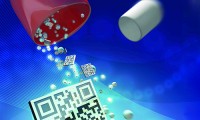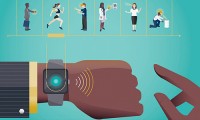-
Edible QR medication could help doctors prescribe more accurately, keep patients more informed
- Source: MobiHealthNews
- 730
- February 6, 2018
-
Prostate cancer now third biggest cancer killer in the UK
- Source: pharmatimes
- 743
- February 5, 2018
-
Breakthrough status for Roche’s autism drug
- Source: pharmatimes
- 877
- February 5, 2018
-
Ferring’s ZOMACTON® (somatropin) for Injection Receives FDA Approval to Treat Growth Hormone Deficiency in Adults
- Source: medindia.net
- 844
- February 5, 2018
-
GSK China partners with Ali Health to launch innovative online service platform to improve adult vaccination consultation experience
- Source: gsk-china
- 806
- February 5, 2018
-
Hospitals turn to mobile devices to cut costs, study shows
- Source: Healthcare Dive
- 1,024
- February 5, 2018
-
Wearable devices for business vs. fitness
- Source: Tech Republic
- 885
- February 5, 2018
-
The Future of Pharmacy
- Source: Blockchain Healthcare Review
- 903
- February 5, 2018
your submission has already been received.
OK
Subscribe
Please enter a valid Email address!
Submit
The most relevant industry news & insight will be sent to you every two weeks.













